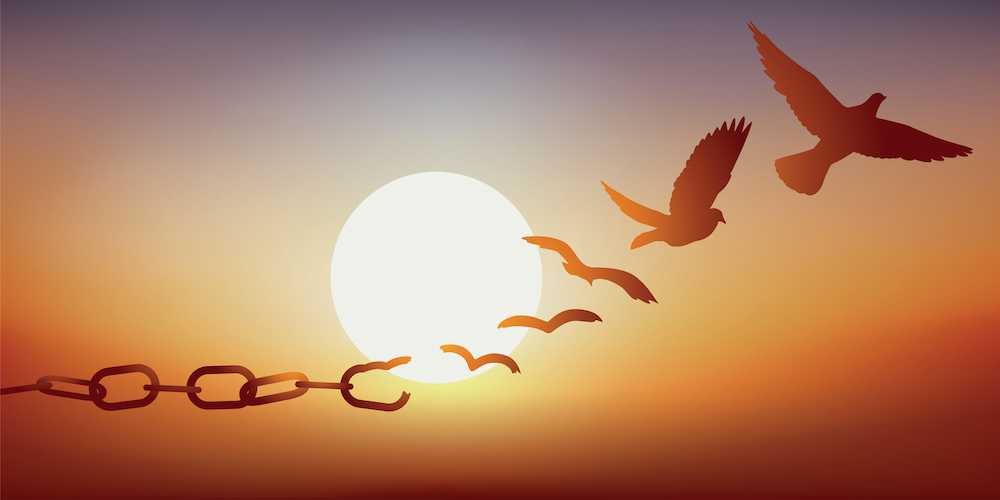This article, by a reader who wishes to remain anonymous, is a moving portrayal of disadvantage and incarceration. It sheds light on the struggles faced by those who have been through the ACT prison system and their efforts to reintegrate into society.
Tom cuts an imposing figure when he walks around the city. He strides with an energy that makes him seem even broader and taller than he already is. With a fade like Nathan Cleary and a beard on the way to Ned Kelly status, he fills spaces. Tattoos coil around one leg, a few are scattered across arms and between fingers. For a man in his early thirties, he looks a decade older than he is, until he grins, and the years fall away to reveal a cheeky kid.
It took Tom a month or so to lose the walk that you adopt in jail. Longer still to visibly shed the constant vigilance that is required to survive there, but perhaps that remains, underneath. He worried about passing for ‘normal’ for ages, asked me if I thought people could tell where he’d been. No, I’d say honestly, because the truth is that most Canberrans don’t think about the Alexander Maconochie Centre (Canberra’s jail for adults) or the people who live there at all. And unless they have connections to the jail, they might not think of them as people, and unless they understand how crime and punishment work, they might not think much about how most people who live there, will one day be released.
Evidence shows that jail is criminogenic – that is, that going to jail increases your chances of returning. Ultimately, the community doesn’t benefit from locking the Toms of this town away. It costs $500 a day to keep someone in the AMC, which is a lot of money to most of us. I know I’d rather my taxes went to breaking cycles of poverty and trauma, and addressing the causes of people’s offending so as to prevent crime and the creation of future victims. I’m not deaf to the voices of victims, and people should accept responsibility for what they have done and be sentenced appropriately. But it’s not as if by giving an offender rights, you take away a victim’s. People don’t usually come to jail when they are thriving. Most are also victims. Like Tom.
Some of the things that Tom had to do to survive in the AMC don’t sit comfortably with who he is. He made the choice early on that his children wouldn’t visit him while he was detained. Released from remand on the day of his sentence, he couldn’t access a lot of the programs that sentenced people could. How frightening, isolating, mind-numbing.
It’s hard to be poor in this town, where it seems easier to re-charge an electric car than it does to get a free meal. It’s tremendous we have food banks, but try getting to them in the random hours they are open during the day, in the odd spots they are nestled, when you are trying to hold down work, and don’t have a licence or access to someone with a car, or live near public transport. It’s good to have Winnunga [Nimmityjah Aboriginal Health and Community Services] here, but the wait lists are lengthy, and when your brain isn’t well, waiting for free, culturally appropriate health care is impossible, and reverting to old habits to cope with life-long trauma becomes hard to resist.
One day, I told him about how my child had Healthy Harold visit their school, and how I’d loved those experiences when I was younger. He said he hated them because he had to pretend that he already knew the lessons being taught, like how you should brush your teeth, because he didn’t have a toothbrush, and he didn’t even realise that wasn’t normal until moments like those. He went to school in his mum’s shoes because they were the shoes in the house. Looking at him now, crooked smile, trying to get back on his size 13 feet and navigate life, it’s impossible not to think about the lifelong impact of child abuse and neglect.
I watched Tom dance around his lounge room one night to John Williamson’s ‘Old Man Emu’, spinning around with his kids. Seeing him as a dad was a powerful moment. His kids deserve him in their lives, saying things a fellow in his thirties has no business saying, like ‘the new dryer, she’s a pearler’. He made them brush their teeth when the song finished, before sending them to bed. People are capable of good and bad, and perhaps more importantly, of growth. We are all doing the best we can with what we have, in lounge rooms across Canberra.



